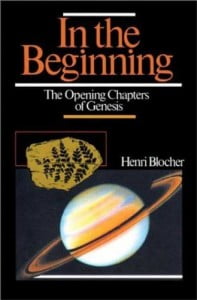 I am continuing here my repost and revision of a mini-series from three years ago. I have argued that we cannot avoid the need to interpret Scripture; since it is a bearer of meaning, and not a cipher or code of marks on a page, then to read is to interpret. The previous two ‘essentials’ were:
I am continuing here my repost and revision of a mini-series from three years ago. I have argued that we cannot avoid the need to interpret Scripture; since it is a bearer of meaning, and not a cipher or code of marks on a page, then to read is to interpret. The previous two ‘essentials’ were:
- first, to read the part in the light of the whole, to be aware of the big picture of the story of the Bible, asking the question ‘What does this text mean here, in this part of the story?’ which is the question of canon.
- secondly, to be aware of the original context in which the text was written, read, or in which it found its place in the canon of the Bible. A text without a context is a pretext, and what we think a text means must connect with what the first readers would have understood it to mean.
Following from canon and context, my third essential in interpretation is to consider the kind of writing that we are reading, or genre. (Theologians are in the habit of making relatively straightforward things sound quite complicated, usually by giving them a name in another language. In this case we translate the word ‘kind’ into French, giving us genre. The idea is then that you have to employ us to explain these complicated terms and translate them back from the other language into English so you can understand them!)
If you are not sure why genre is important, then just read this:
The stars will fall from heaven,
the sun will cease its shining;
the moon will be turned to blood,
and fire and hail will fall from heaven.
The rest of the country will have sunny intervals
with scattered showers.
Whenever I read this out loud to groups, without fail there is a ripple of amusement going round the room when I read the last pair of lines. But it’s worth asking ‘why?’ In any formal respect, each of the three pairs of lines is similar to the others. They are written in the same language, they use similar vocabulary, they follow the same structure. So what is the difference when I get the last pair of lines? And the answer is not that the first four are metaphorical and the last two are literal; the language of ‘intervals’ and ‘showers’ is just as metaphorical as anything that’s come before. There is something about familiarity and strangeness, but familiarity and strangeness of what? Of course, the answer is genre; we recognise (somehow or other) that the first four lines are one ‘kind’ of writing, whilst the last to lines are another ‘kind’ of writing. We might call the first four lines ‘apocalyptic’ genre, whilst the last two lines are ‘weather forecast’ genre.
Genre does a number of different things in writing. For one, it tells us something about the relationship between the writer of the text and its readers—at least its assumed or original readers. If I’m writing to my bank manager, I would choose one particular genre, but if I’m writing to my wife I will choose a different genre because my relationship with her is different. (This assumes I’m not married to my bank manager, which I’m not.) But even more key is the fact that genre will determine the way we interpret what we are reading. This is because genre is the mechanism by which authors instruct readers how to make sense of what they have written. If I want you to interpret my writing literally and directly, I will write in the style of an instruction manual. But if I want you to interpret my writing provocatively, and emotively, I will write in a poetic style.
Genre recognition is the literary equivalent of empathy. Just as it is impossible to understand another person without willing to be empathetic, so it is impossible to understand a text without recognising its genre.
This might sound a bit challenging when we open our Bibles. But the good news is that each of us is already a genre recognition expert. When you pick up your post from the mat in the morning, your genre recognition antennae are already twitching. If you pick up an envelope which is one third A4, with a window in it, and your address is written formally and left aligned, and you know this is an important business matter, and you will read and interpret it accordingly. If the envelope is square, coloured and has your address written by hand, perhaps with a stamp stuck on it, then you would take it as a personal letter and read it and approach it in quite a different way.
On the other hand, the bad news is that no one tells you how to recognise and interpret different genres. We learn this through experience, and so we feel challenged when we come across a genre we do not recognise or are not familiar with. Genre recognition is a pragmatic process; you cannot isolate a genre as if it was something you could pin down and put in a display board. But recognising different genres is essential to sensible biblical interpretation. It involves asking the question:
What did it mean given it is written in this way?
Some of the most obvious implications of this come at the beginning and end of the Bible. In terms of genre, Genesis 1 bears little relation to a science textbook. (Of course, the idea that it is offering anything remotely comparable to a post-Enlightenment scientific account is completely anachronous.) In fact its form is quite poetic, both in terms of its use of phrases and language, but also in terms of its overall structure. This is shown in some contemporary translations, but also highlighted in commentaries or studies such as Henri Blocher’s In the Beginning.
There is considerable continuing debate about the exact genre of the Book of Revelation. Parts of it are styled like a first century letter (Rev 1.4, 1.9); it also claims to be a prophecy (Rev 1.3); and the whole piece styles itself as a ‘revelation’ (Rev 1.1). But even in the first chapter, it rapidly switches from one genre to another, drawing upon Old Testament elements of praise, prophecy, and apocalyptic, and this gives a somewhat disorienting feel to it for the reader. Which genre is most important here? And so how am I to interpret it? Given that we know lots of other examples of this kind of revelatory literature, it is clear that John’s first readers would not have been as baffled as we are. When Jesus uses this kind of language in Mark 13, it is quite striking that none of the apostles express surprise or puzzlement—they seem to think that this is a perfectly reasonable way for Jesus to talk! (In fact they find Jesus’ teaching parables much more baffling in Mark 4, and seem quite happy that he has now switched to the more familiar apocalyptic!) The other similar literature that we know of shares some features with Revelation, but also has some important differences—and curiously none of them describes themselves as a ‘revelation’. But what we can be confident of is that this kind of writing is not setting out a future timetable for world events.
Considerations of genre also key in reading wisdom literature such as the Book of Proverbs. The sayings in the work often take the form of ‘If… then…’ But we can see from comparison with other similar literature of the time that these are not rules by which God or the universe operate; rather, they are distilled wisdom about healthy and fruitful living. Something similar applies to the Letter of James. According to Richard Bauckham, James is a form of wisdom literature, written as an encyclical, passing on the wisdom of the sage Jesus. When we read that the sec will be healed through the prayers of the elders (James 5.13–16) this is not a cast iron rule of spiritual world, but a pattern of healthy and helpful living in the light of the lordship of Jesus. Reading this aright has some crucial pastoral implications.
We also need to take seriously the fact that Job and Jonah are something other than the kind of prophetic history we find in Samuel and Kings. There is good evidence for this in the style of writing, use of vocabulary, and shape of the story told, in both cases.
Two final observations. First, paying attention to genre is not a way of playing ‘pick and mix’ with the Bible, choosing which bits we like and which bits we can comfortably write off as ‘symbolic’ and therefore less demanding. If, as far as we can tell, a text is written to be symbolic, then taking the text seriously means reading it symbolically; there is no virtue in thinking that Is 43.2 is about God giving us swimming lessons, and I am not avoiding anything challenging by reading it metaphorically. There are also plenty of parts of Scripture that appear to demand being taken ‘literally’ or historically, such as the gospel narratives, and that includes some of Paul’s awkward and challenging ethical injunctions.
Secondly, it is also important to recognise that ‘genre recognition’ is an aspect of interpretation which centres on the text and not on the reader. That is, I identify the genre of a text from the text itself (read in its historical context in comparison with other similar literature) and not by picking something off the shelf on a whim, or in line with my own philosophical preferences. This is part of the discipline of reading, of treating the text as ‘other’ than myself, not an indulgence on the part of the reader.
We cannot avoid the task of interpretation, so how do we do it well? First, by asking ‘What does this text mean here, in this part of the biblical story?’ which is the question of canon. Second, we need to ask the question of context, ‘What did this text mean then?’ Thirdly, we need to ask the question of kind of writing (even though it does not begin with ‘c’!): ‘What does it mean written in this way?‘
Follow me on Twitter @psephizo. Like my page on Facebook.
Much of my work is done on a freelance basis. If you have valued this post, would you consider donating £1.20 a month to support the production of this blog?





























This is a great piece! Especially the observation about the apostles and the apocalyptic genre – that will definitely be food for thought.
I would also note that many of the points you make about James are equally applicable to the teachings of Jesus in (for example) the sermon on the mount. Jesus as wisdom teacher is a key theme in the gospels.
Thank you, Ian, I also found this very helpful.